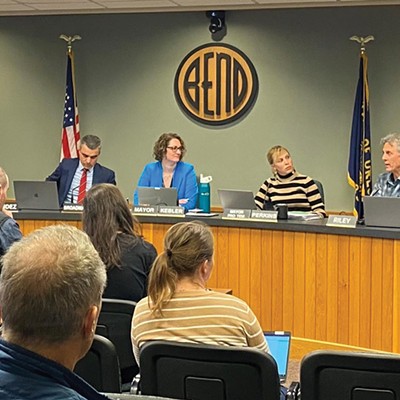The Oregon state legislative session wrapped up last week, and compared to past years that were mired by walkouts, it's fair to say that a lot got done. And while some legislation, such as the reform of Measure 110, got a lot of the attention, a couple bills were also noteworthy, including a bill to limit campaign finance spending and one that ends the Oregon State Treasury's investments in coal. Let's look at the pros and possible cons of these bills.
Oregon's Divestment from Coal
HB 4083, the Clean Oregon Assets Legislation, or COAL act, ends the state treasury's new investments in thermal coal, and directs the treasury to "dump an estimated $1 billion in current holdings in coal stocks," reads a press release from chief sponsor, Rep. Khanh Pham (D- SE Portland). The legislation was supported by a number of public sector unions, including the Oregon Education Association, whose pension dollars are used to invest in various stocks. It's a good thing to see the notion of divestment in fossil fuels take root on this scale. It's the right thing to do to help usher in the transition to cleaner energy – not to mention the fact that carbon-intensive sectors of the economy are increasingly becoming risky investments. Amid pressure from the highest forms of government in the U.S., a 2021 article in "Forbes" put it this way: – "Within finance, government, and civil society, the divestment movement has forced a fundamental reckoning with the future of the global energy system."
However, the movement to divest in fossil fuels does have a twist. In an article in the Harvard Business Review in 2022, the author points out that when someone sells or "divests" in an asset like coal, someone then buys that asset, and may seek to improve the asset.
"In other words, for you to divest, someone else needs to invest. As a result, divestment could end up breathing new life into fossil fuel assets – exactly the opposite of what's intended," the HBR article explains, advocating to also include a practice of "running off" the assets. "To make an impact — not just a statement — companies should plan to sunset fossil fuel investments at the ends of their useful lives rather than pass the buck to someone who could try to make them productive again."
This notion of unintended consequences is interesting food for thought — though certainly, ending Oregon's new investments in coal is a move in the right direction.
Oregon Limits Campaign Contributions, Finally
Until Gov. Tina Kotek signs the bill limiting campaign cash for political candidates in the state, the Beaver State is still one of five states that have no limits on campaign contributions. A bill imposing some limits on campaign contributions passed the House and Senate this session, and now awaits the governor's signature. One could call it a personal victory for our own Sen. Tim Knopp (R-Bend), who may very well have ended his political career this month after being disqualified from running again due to last session's unexcused absences. Knopp had been working on campaign finance limits for over 20 years, the Oregon Capital Chronicle reported.
Now, with the passage of HB 4024, contributions to candidates and political action committees are more limited — though not limited enough, and with fewer oversight mechanisms than some would like. The Oregon Secretary of State's campaign finance reporting database, ORESTAR, makes it relatively easy for people to view the contributions a candidate is getting from individuals, but when it comes to PACs, it's a lot more shadowy. It can be hard for the average citizen to glean who's behind a PAC and what their priorities are...not to mention what level of influence they have over candidates.
Call this effort at campaign finance reform a half-step or not enough... but at the very least, it helps to level the playing field in Oregon politics.






















